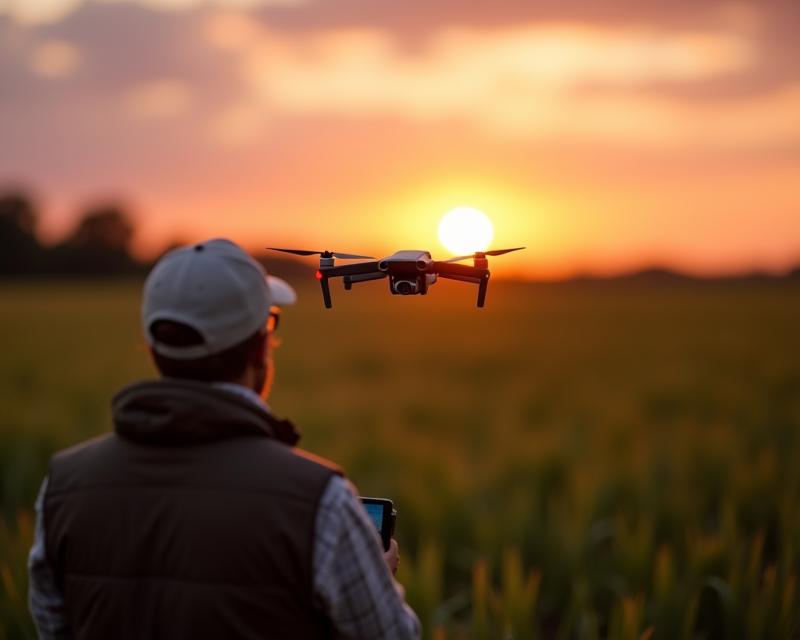Drone Risks: A Farmer's Guide
Publish in Sustainable Farming el 03/07/2025 17:26
Drone Risks: A Farmer's Guide
Agricultural drones are revolutionizing farming, offering incredible benefits like crop monitoring, precision spraying, and livestock management. But like any powerful tool, they come with potential risks. Understanding these risks is crucial for safe and effective drone operation and protecting your farm.

Safety First: Airspace and Regulations
One of the biggest concerns is airspace. Drones operate in controlled airspace, and flying without proper authorization can lead to hefty fines and, more importantly, safety hazards. Always check with the FAA (Federal Aviation Administration) or your local aviation authorities before taking flight. Register your drone and understand the regulations regarding altitude restrictions, no-fly zones (like near airports or sensitive infrastructure), and operating hours. Ignoring these rules isn't just risky; it's illegal!
Privacy and Security Concerns
Drones equipped with cameras can raise privacy concerns, especially if you're operating near neighbors or public areas. Be mindful of where you're flying and what you're recording. Data security is also important. Ensure your drone and associated software are protected with strong passwords and security measures to prevent unauthorized access to your farm data. Consider the potential for data breaches and implement safeguards to protect sensitive information about your operations.
Technical Issues and Maintenance
Drones are complex machines, and technical malfunctions can occur. Battery failures, GPS errors, and software glitches are all possibilities. Regular maintenance is essential to minimize these risks. Check your drone's batteries before each flight, ensure the propellers are in good condition, and keep the software updated. Have a contingency plan in place for unexpected issues, including a safe landing procedure.
Environmental Considerations
While drones can contribute to sustainable farming practices, they also have environmental impacts. Noise pollution can disturb wildlife, and battery disposal poses an environmental challenge. Choose drones with quieter motors and responsibly dispose of batteries according to local regulations. Consider the energy consumption of your drone operations and explore ways to minimize your carbon footprint. By being aware of these risks and taking proactive measures, you can harness the power of drones safely and responsibly for a more productive and sustainable farm.





